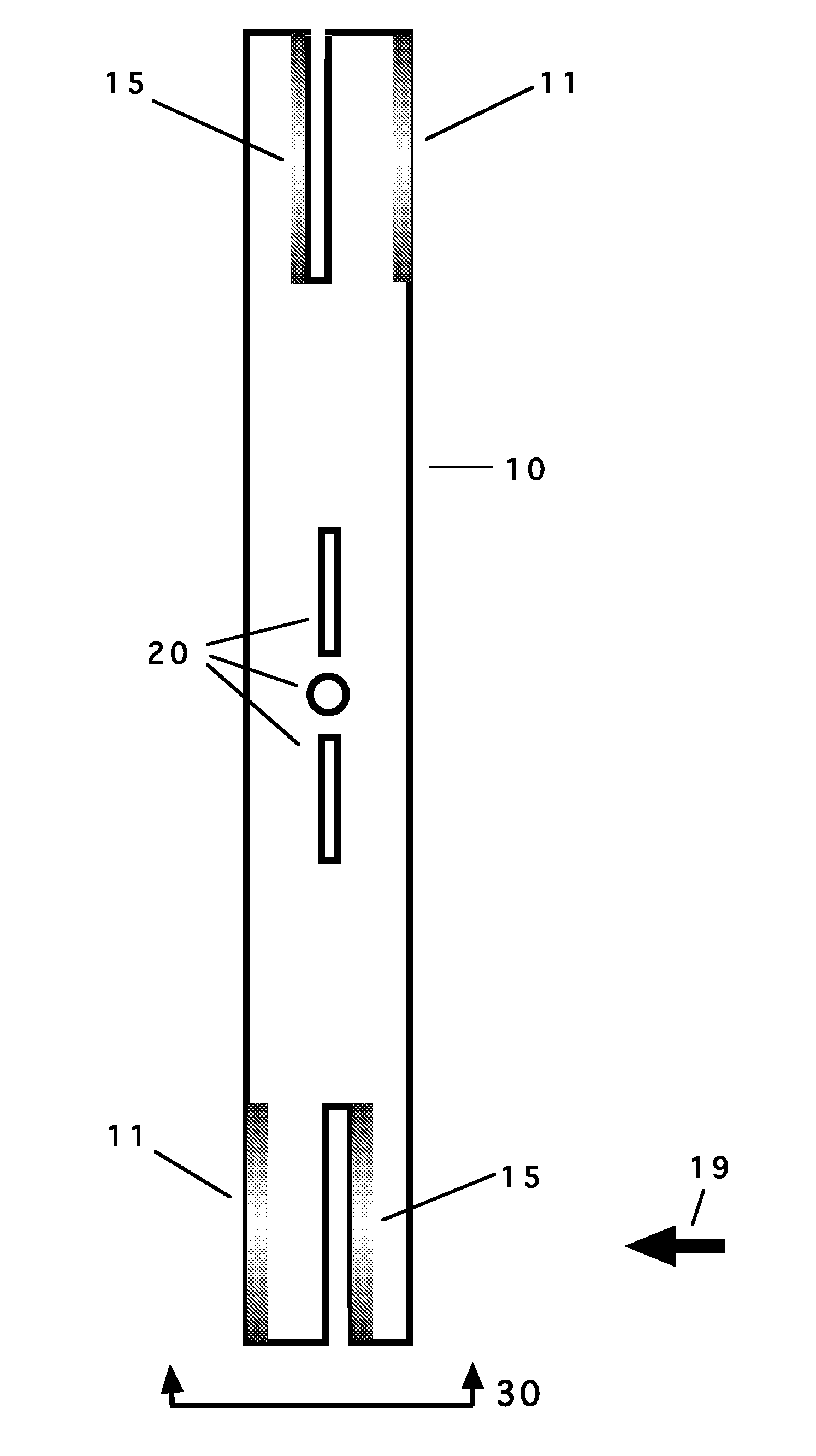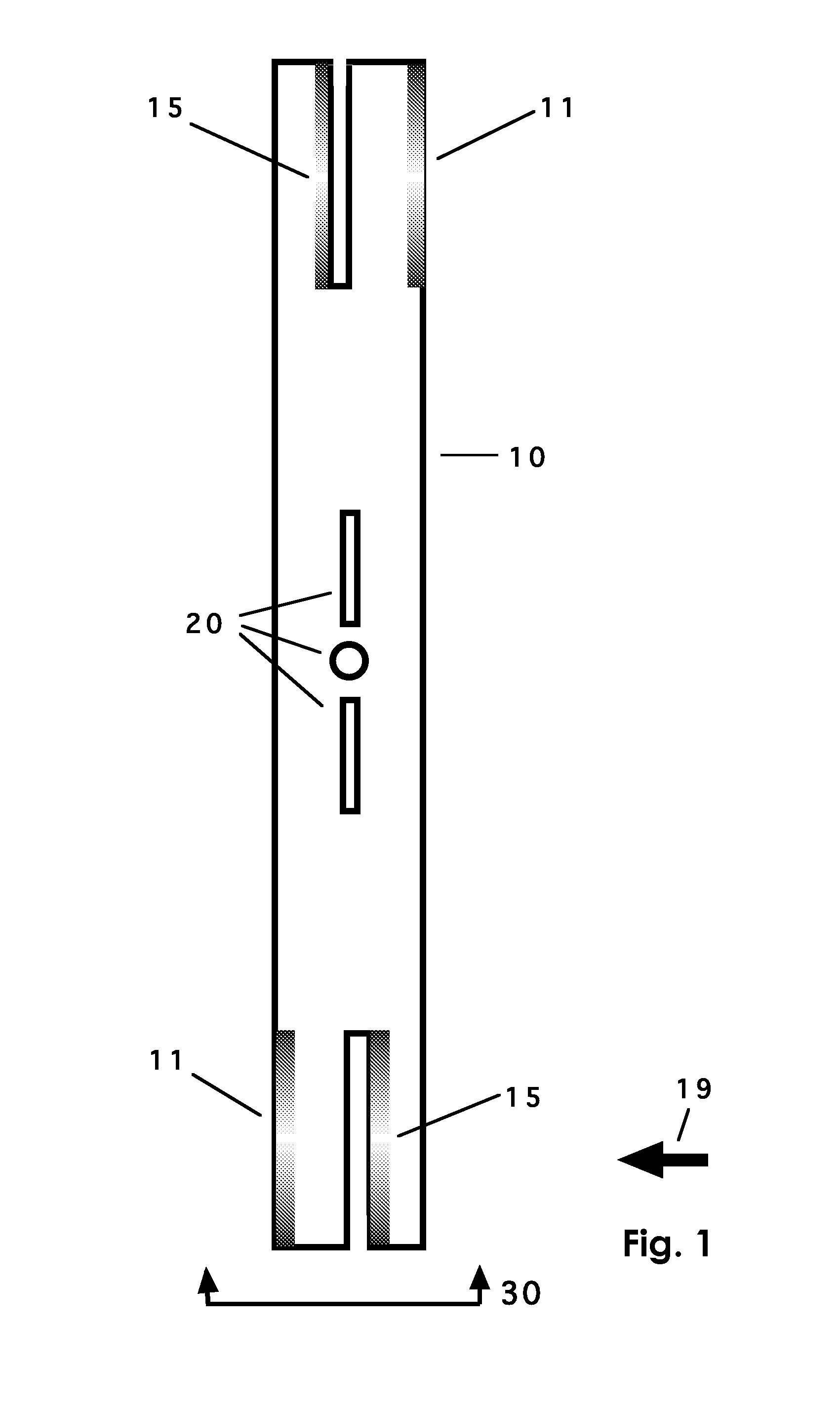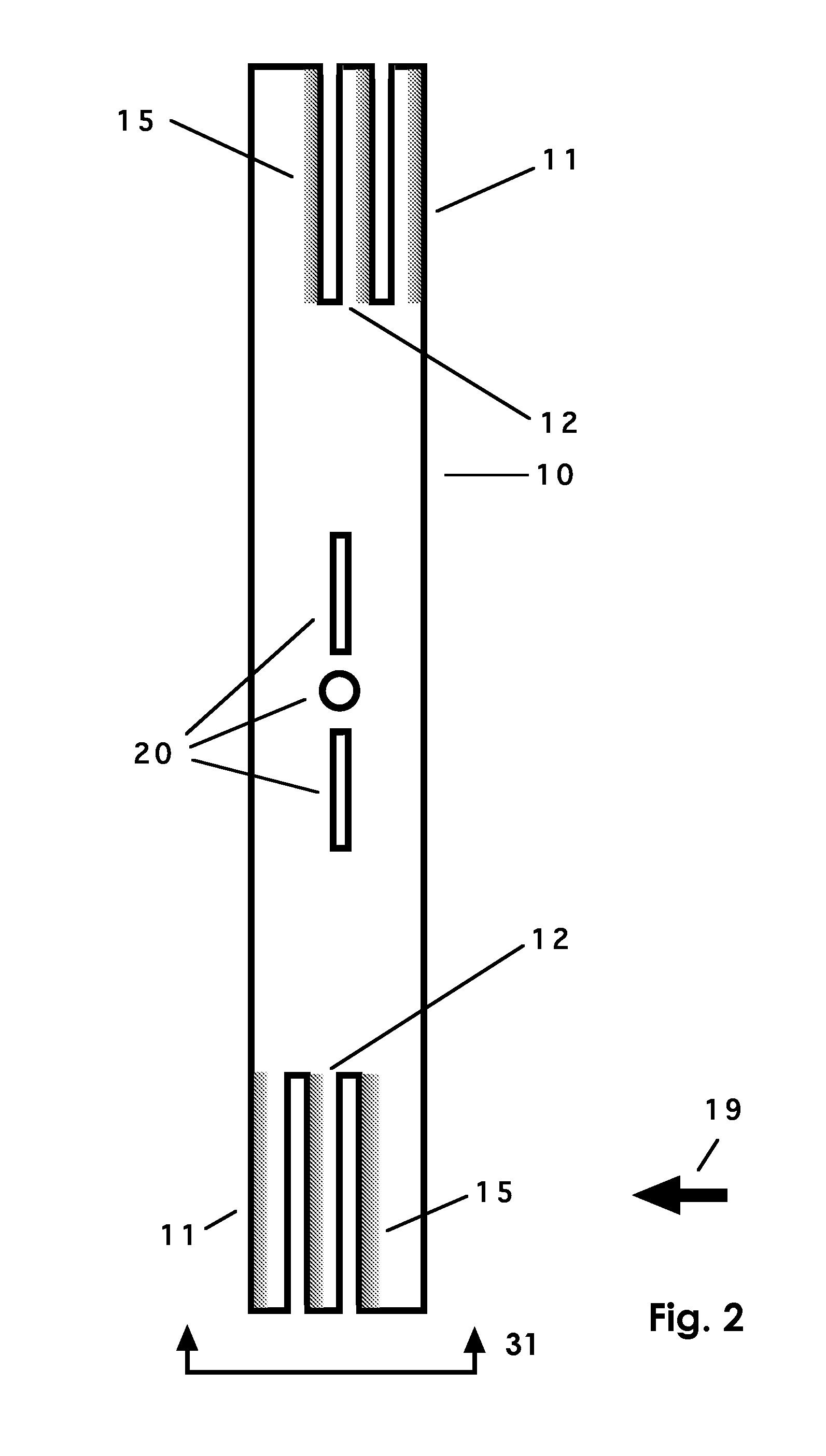Rotary mower blade integrating aerodynamic elements.
a technology of aerodynamic elements and rotary mowers, applied in mowers, agriculture tools and machines, agriculture, etc., can solve the problems of less complete mulching action, less cutting action and safety of vegetation, and vegetation to lie down, so as to reduce the cost of manufacturing, improve the cutting action and safety, and reduce the effect of atmospheric pressur
- Summary
- Abstract
- Description
- Claims
- Application Information
AI Technical Summary
Benefits of technology
Problems solved by technology
Method used
Image
Examples
Embodiment Construction
[0024]According to an embodiment of the present invention, the design is an elongated generally rectangular vegetation cutting multi-edge blade apparatus intended to be used on rotary mowers, affixed to and rotated by a powered support assembly, where the support assembly rotates the blade cutting members on a rotational plane parallel to the vegetation to be cut.
[0025]FIG. 1 shows a top view of one embodiment of the blade 10 having a single vegetation shredding and aerodynamic vegetation directing member 11, and a primary vegetation cutting member 15 per each blade end. Rotational direction is illustrated by arrow 19. The blade 10, as shown is equipped with cutout holes 20 allowing mounting on many existing mowers. The aerodynamic directing member 11 shown in FIG. 1 is configured at an acute angle in close proximity to member 15 in a manner to aerodynamically direct vegetation onto the sharpened primary cutting edge on member 15. Close proximity of members 11 and 15 enhances aerody...
PUM
 Login to View More
Login to View More Abstract
Description
Claims
Application Information
 Login to View More
Login to View More - R&D
- Intellectual Property
- Life Sciences
- Materials
- Tech Scout
- Unparalleled Data Quality
- Higher Quality Content
- 60% Fewer Hallucinations
Browse by: Latest US Patents, China's latest patents, Technical Efficacy Thesaurus, Application Domain, Technology Topic, Popular Technical Reports.
© 2025 PatSnap. All rights reserved.Legal|Privacy policy|Modern Slavery Act Transparency Statement|Sitemap|About US| Contact US: help@patsnap.com



